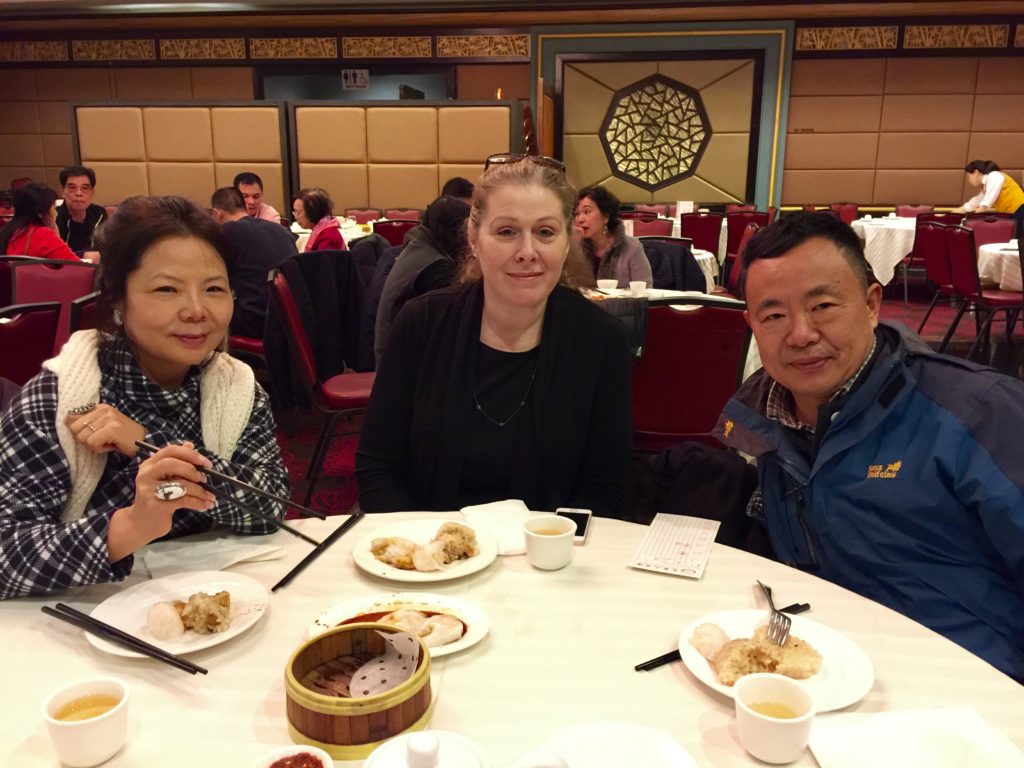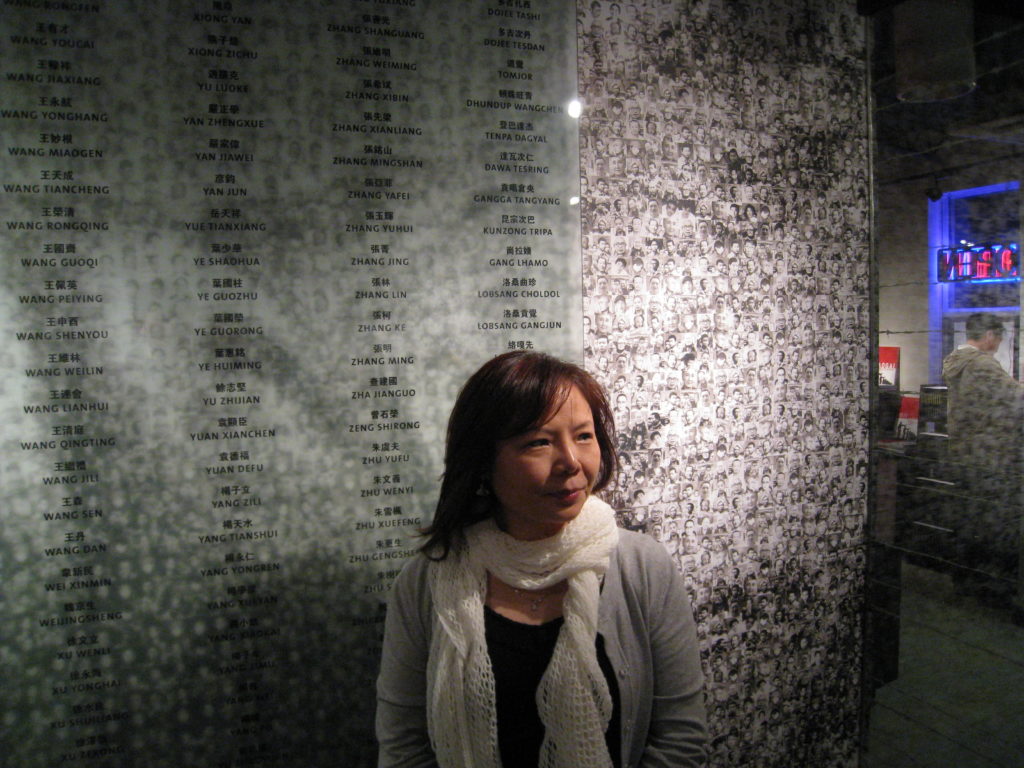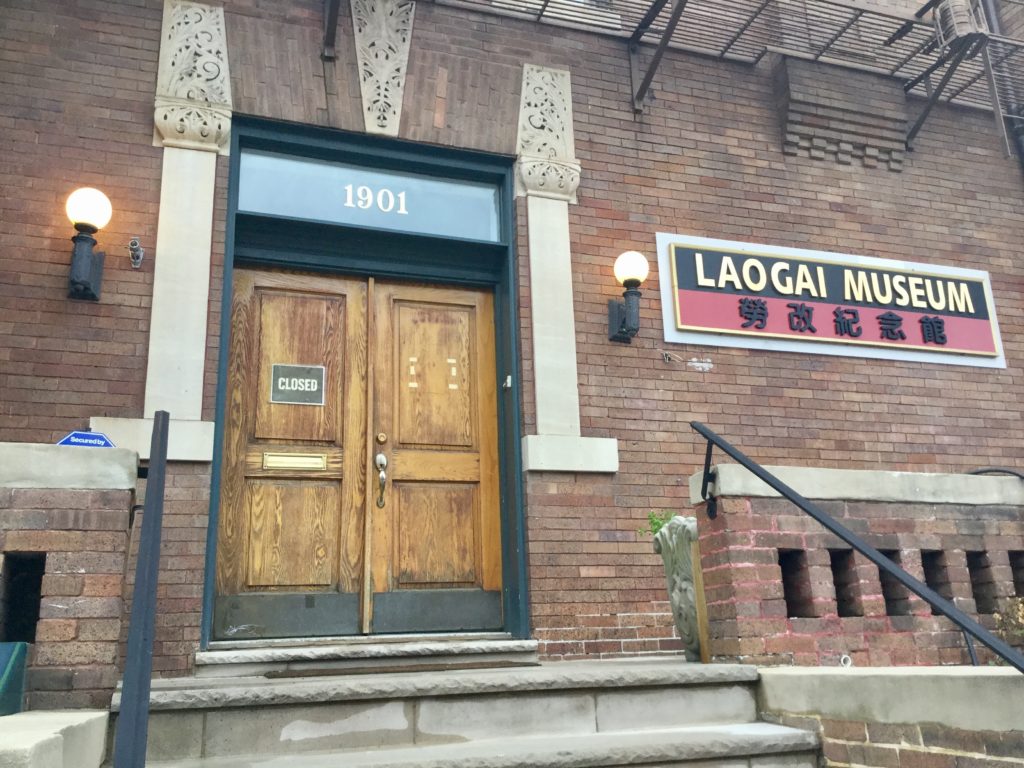BBG Watch Commentary
Among those disagreeing with Broadcasting Board of Governors (BBG) and Voice of America (VOA) officials is former Chinese political prisoner, human rights activist Zhang Lin who has recently returned to the United States after being imprisoned by the Chinese communist government.
Zhang Lin’s negative assessment of VOA programming was included in a press release published by the Committee for U.S. International Broadcasting (CUSIB – cusib.org), an independent, non-partisan NGO which advocates for reforms at the Broadcasting Board of Governors and some of its media outlets.
Zhang Lin stated: “I have listened to Voice of America for many, many years and have had radios smuggled into prison so I could listen late at night. It gave me hope.”
Mr. Zhang spoke about how disappointed he is in the current quality of the reporting at Voice of America, and how different it has become compared to the coverage during the years that followed Tiananmen Square. He said: “There are too many people interviewed, too many meaningless postings. And their website is very sloppy, and not updated enough.”
Mr. Zhang said that he hopes that he will have a chance to meet with officials who oversee the Voice of America to explain why more resources need to be given to reporters, and more discretion is used.
He said that radio in China is important, both short wave and medium wave. Television in China is also very important, and so is the Internet.
February 4, 2018
For Immediate Release
Committee for U.S. International Broadcasting (CUSIB – cusib.org) members, Executive Director Ann Noonan, and CUSIB Advisory Board members: Justin Yu, Executive Director of the Chinese Chamber of Commerce of New York and Jing Zhang, former political prisoner of China’s Laogai forced labor prison system, journalist and women’s rights activist, discussed with Chinese political dissident Zhang Lin how U.S. taxpayer-funded Voice of America (VOA) routinely gives airtime to China’s communist government officials, allowing them to explain their point of view, and how this appears to many as effectively letting VOA become a mouthpiece for China’s government. VOA is part of the Broadcasting Board of Governors (BBG) U.S. federal agency. This manipulation of Voice of America was not permitted during the Tiananmen Square Massacre of Students, and was not allowed until recently, CUSIB members and Zhang Lin agreed. Mr. Zhang spoke about how disappointed he is in the current quality of the reporting at Voice of America, and how different it has become compared to the coverage during the years that followed Tiananmen Square. Speaking of how VOA has changed from what it was until very recently, Mr. Zhang said that before the VOA programming started to disappoint human rights activists in China: “I have listened to Voice of America for many, many years and have had radios smuggled into prison so I could listen late at night. It gave me hope.”
20 Years later, Chinese Dissident Zhang Lin is Back in the USA
Chinese political dissident Zhang Lin arrived in NYC on January 26, 2018. He was welcomed back to the United States at JFK airport by his two daughters, Ru Li (age 23) and Anni (age 15). Thanks to Voice of America (VOA) China Service and Radio Free Asia (RFA), his story was shared with the world.
On January 30, 2018, Zhang Lin reunited with three members of the Committee for US International Broadcasting: Justin Yu, Executive Director of the Chinese Chamber of Commerce of New York; Jing Zhang; Founder and President of Women’s Rights in China; and Ann Noonan, Co-Founder and Executive Director of the Committee for US International Broadcasting. Mr. Yao Cheng, a volunteer from Women’s Rights in China and Mr. Thomas Cristiano, a former parishioner at Saint Joseph’s Church in lower Manhattan also attended the Chinatown meeting.

Zhang Lin once lived in New York City. He was previously granted political asylum during the Clinton Administration for his efforts to promote labor rights and democracy in China. In February of 1998, he participated in the “Salute to Democracy in China and in New York City” reception alongside political leaders such as former New York City Mayor Ed Koch, prominent Chinese dissidents Harry Wu and Wei Jingsheng, New York Central Labor Council Secretary Ted Jacobsen, and President of the Institute of Catholic Culture Father Paul Chan.
Unlike many who have come to the United States and are granted asylum to live here freely, Mr. Zhang chose to return to his homeland to continue to fight for those in China who were living under communist rule. Zhang Lin spent a total of 16 years in China’s Laogai prison system, and his crime was fighting for democracy and labor rights.
The Dui Hua Foundation has documented the following about Zhang Lin:
“The Anhui-based activist was detained on July 19, 2013 for organizing protests over Hefei authorities’ refusal to allow his youngest daughter, Anni, to attend a local school. A number of prominent activists, including Xu Zhiyong, joined Zhang in protesting his daughter’s treatment. (Xu, a prominent rights lawyer, is currently serving a four-year sentence for gathering a crowd to disrupt a public place in Beijing.)
Zhang was convicted of gathering a crowd to disrupt a public place and sentenced to three and a half years in prison in December 2013. His sentence was due to expire on January 18, 2017, but the remainder of his sentence was commuted on September 9, 2016.
Now 53 years old, Zhang has been sentenced five times for his political activism, serving a total of more than 16 years in prisons and re-education through labor (RTL) camps. He has spent half of his adult life in carceral facilities. He was first detained for organizing a hunger strike in Bengbu in support of the Tiananmen protests of 1989. He was convicted of counterrevolutionary propaganda and incitement and sentenced to two years in prison with one year subsequent deprivation of political rights. After his release, Zhang continued his activism, serving three years in a RTL camp for hooliganism (August 1994 to August 1997), another three years in a RTL camp for illegal border crossing (October 1998 to October 2001), and five years for inciting subversion (February 2005 to February 2010).”
In 2014, Mr. Zhang’s daughter Anni was 11 years old and living in China with her father. As part of Anni’s government-sanctioned punishment for her father’s political activities, she was to be sent to an orphanage with no right to education.
Anni’s plight was widely publicized, and at the request of her father, she was able to leave China and live in the United States with Reggie Littlejohn, founder of Women’s Rights Without Frontiers.
This was the end result of a massive effort by many people, including: Jing Zhang, President of Women’s Rights in China; various Members of the United States Congress; John Kamm, President of the Dui Hua Foundation; and Ann Noonan, Executive Director of the Committee for US International Broadcasting (CUSIB – cusib.org).
During Zhang Lin’s January 30th meeting in Chinatown, he spoke about his concerns regarding the current situation facing people in China and Tibet, and his appreciation of the United States broadcasts into China.
Zhang Lin stated: “I have listened to Voice of America for many, many years and have had radios smuggled into prison so I could listen late at night. It gave me hope.”
Mr. Zhang spoke about how disappointed he is in the current quality of the reporting at Voice of America, and how different it has become compared to the coverage during the years that followed Tiananmen Square. He said: “There are too many people interviewed, too many meaningless postings. And their website is very sloppy, and not updated enough.”
Mr. Zhang said that he hopes that he will have a chance to meet with officials who oversee the Voice of America to explain why more resources need to be given to reporters, and more discretion is used.
He said that radio in China is important, both short wave and medium wave. Television in China is also very important, and so is the Internet.
He expressed how grateful he is to everyone who has helped him and his family.
During the meeting, a consensus was reached that the growing bureaucracy at the Broadcasting Board of Governors should end, and resources should be re-directed to enhance and expand China Service broadcasts. These include Cantonese, Mandarin and Tibetan Services.
CUSIB members discussed how Voice of America routinely gives airtime to China’s communist government officials, allowing them to explain their point of view, and how this appears to many as effectively letting the Voice of America become a mouthpiece for China’s government. This manipulation of Voice of America was not permitted during the Tiananmen Square Massacre of Students, and was not allowed until recently.
A discussion pursued about the need for Voice of America to hire more reporters, and eliminate the many burdens that are currently placed upon journalists who need more assistance with technical support. All agreed that the Broadcasting Board of Governors needs new leadership, with a new CEO and Voice of America Director.
Zhang Lin stated that in the upcoming weeks, he also expects to visit Washington, DC. He hopes to be able to go inside the Lagoai Museum for the first time and see in person, his name engraved in stone on the Wall of Laogai Victims.
The Laogai Museum in Washington DC was founded by Zhang Lin’s friend, the late Harry Wu. It was the first and only museum in the world that documented China’s vast reform through prison labor system: the Laogai.
Zhang Lin’s name appeared in one section of the Laogai Museum on a wall listing the names of many other Laogai victims. His name appeared directly after CUSIB Board Member Jing Zhang, who suffered for 5 years in the Laogai because of her pro-democracy efforts.

The Laogai Museum has been shuttered for more than one year, only months after the death of Laogai Research Foundation President Harry Wu in April 2016. It is uncertain if it will ever re-open or if the documents inside that were intended for scholarly review will ever be made available again.

Zhang Lin intends to apply for Humanitarian Aid from the Laogai Research Foundation and the Laogai Human Rights Organization, and wants to use the money to learn English and become a strong voice for those who are left behind in China and whose voices are not allowed to be heard.
During these next few months, CUSIB will follow up with Zhang Lin’s efforts to be interviewed by Voice of America and Radio Free Asia.
Disclosure: BBG Watch co-founder and supporter Ted Lipien is also one of CUSIB’s co-founders and directors. He did not participate in the meeting with Mr. Zhang Lin and did not contribute to writing the CUSIB press release.

